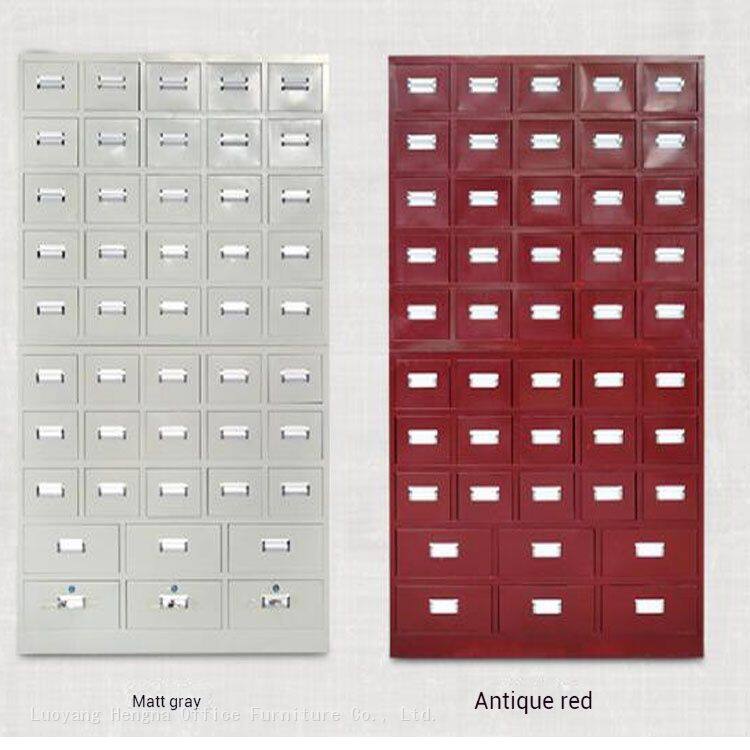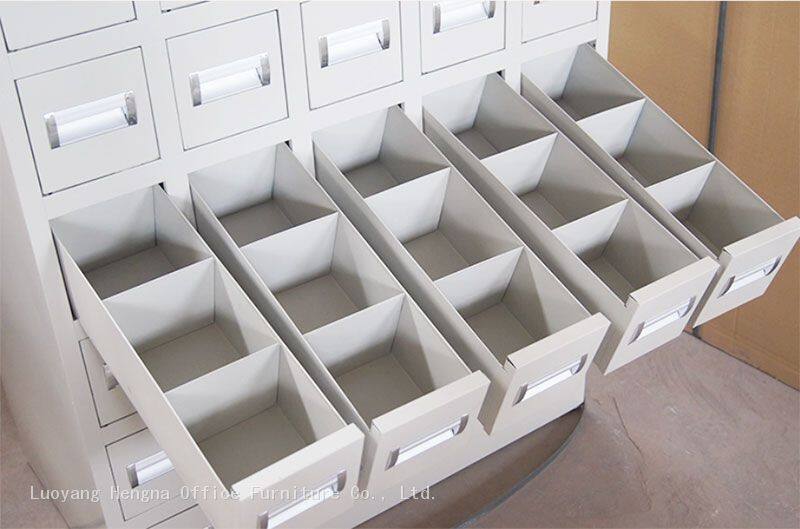-
 Sarah
Hi there! Welcome to my shop. Let me know if you have any questions.
Sarah
Hi there! Welcome to my shop. Let me know if you have any questions.
Your message has exceeded the limit.

Steel vs. Wooden Chinese Medicine Cabinets: Which Is Better for Herbal Storage
2025-10-25 16:45:12
When it comes to storing traditional Chinese herbs and medicines, practitioners and herbal enthusiasts have long debated between steel and wooden cabinets. Both materials have their loyal supporters, each claiming superiority for different reasons. But which option truly provides the best environment for preserving the potency and quality of your precious herbal collection? In this comprehensive comparison, we’ll examine the key factors that make each material unique and help you make an informed decision for your herbal storage needs.
Understanding the Importance of Proper Herbal Storage
Before diving into the steel vs. wood debate, it’s essential to understand why proper storage matters for Chinese herbs. Traditional Chinese medicine relies heavily on the natural properties of plants, roots, and minerals, which can be sensitive to environmental factors:
Moisture: Excess humidity can cause mold growth and degradation
Temperature: Fluctuations can affect the chemical composition of herbs
Light: UV rays can break down active compounds
Air quality: Pollutants and contaminants can compromise herb quality
Pests: Insects and rodents can destroy valuable herbal stocks
The right cabinet must address these concerns while providing practical functionality for daily use.
Steel Chinese Medicine Cabinets: Modern Solutions for Traditional Herbs
Steel cabinets have gained popularity in recent years, especially in clinical and professional settings. Let’s explore their key advantages and limitations.
Advantages of Steel Cabinets
1. Superior Hygiene and Cleanliness
Non-porous surface prevents bacterial growth
Easy to sterilize and disinfect
Resists mold and mildew development
No risk of wood-boring pests
2. Exceptional Durability

Resists warping, cracking, and splitting
Withstands heavy loads without structural compromise
Long-lasting with minimal maintenance
Resistant to scratches and dents
3. Environmental Control
Better insulation against temperature fluctuations
Can be designed with climate control features
Sealed construction prevents moisture infiltration
Optional humidity control systems
4. Security Features
Lockable mechanisms for valuable herbs
Fire-resistant properties
Tamper-proof construction options
Better protection against unauthorized access
Limitations of Steel Cabinets
1. Aesthetic Considerations
May lack traditional appearance
Can appear clinical or institutional
Limited customization options
May not complement traditional decor
2. Cost Factors
Higher initial investment
Professional installation often required
Specialized features increase price
Limited repair options if damaged
Wooden Chinese Medicine Cabinets: Traditional Wisdom Meets Functionality
Wooden cabinets have been used for centuries in Chinese medicine storage, offering a blend of tradition and practicality.
Advantages of Wooden Cabinets
1. Traditional Aesthetics
Authentic appearance complements traditional settings
Natural beauty enhances practice environment
Cultural significance in Chinese medicine
Variety of wood types and finishes available
2. Natural Properties
Wood breathes, allowing slight air circulation
Natural humidity regulation properties
Warm, inviting appearance for patients
Can be carved with traditional designs
3. Customization Options
Handcrafted to specific dimensions
Traditional joinery techniques
Personalized engravings and decorations
Adaptable to unique space requirements
Limitations of Wooden Cabinets
1. Maintenance Requirements
Regular polishing and conditioning needed
Susceptible to warping in humid environments
Vulnerable to pest infestations
May require professional restoration over time
2. Environmental Vulnerabilities
Can absorb moisture and odors
Temperature sensitivity affects wood integrity
Potential for mold growth in damp conditions
Limited protection against pests
Head-to-Head Comparison: Steel vs. Wood
To help visualize the differences, here’s a comprehensive comparison of key factors:
| Factor | Steel Cabinets | Wooden Cabinets |
|---|---|---|
| Durability | Excellent - 20+ years lifespan | Good - 10-15 years with proper care |
| Hygiene | Superior - non-porous, easy to clean | Good - requires regular maintenance |
| Moisture Resistance | Excellent - sealed construction | Fair - susceptible to warping |
| Pest Resistance | Excellent - pest-proof material | Poor - vulnerable to insects |
| Temperature Control | Good - insulation properties | Fair - wood expands/contracts |
| Aesthetics | Modern/clinical appearance | Traditional/authentic appearance |
| Cost | Higher initial investment | Lower initial cost |
| Maintenance | Minimal - occasional cleaning | Regular - polishing, conditioning |
| Customization | Limited - standard sizes | Excellent - handcrafted options |
| Security | Excellent - lockable, fire-resistant | Good - basic locking options |
Which Material Is Best for Your Specific Needs?
The choice between steel and wooden cabinets depends on several factors specific to your situation:
Choose Steel Cabinets If:
You prioritize hygiene and sterility: Ideal for clinical settings or areas with strict cleanliness requirements
You live in a humid climate: Steel’s moisture resistance prevents mold and warping
Security is a concern: Better protection for valuable or controlled herbs
You want low maintenance: Minimal upkeep required over the cabinet’s lifespan
Modern aesthetics fit your space: Complements contemporary clinic designs
Choose Wooden Cabinets If:
Traditional appearance matters: Essential for authentic Chinese medicine practices
You value craftsmanship: Handcrafted options with traditional joinery
You’re in a dry climate: Wood performs better in low-humidity environments
Budget is a primary concern: Lower initial investment
You want customization: Tailored to specific dimensions and design preferences
The Middle Ground: Hybrid Solutions
For those who can’t decide between the two options, hybrid cabinets offer an interesting compromise:
Steel frame with wooden exterior: Combines durability with traditional appearance
Wooden cabinet with steel lining: Provides traditional look with modern protection
Modular systems: Mix steel and wooden components as needed
Custom combinations: Design specific sections for different storage needs

Making Your Final Decision
When choosing between steel and wooden Chinese medicine cabinets, consider these final questions:
What is your primary storage environment? (Humidity, temperature, space constraints)
How important is traditional aesthetics to your practice?
What is your budget for initial investment versus long-term maintenance?
Do you store any particularly valuable or sensitive herbs?
How much time can you dedicate to cabinet maintenance?
There’s no one-size-fits-all answer to the steel vs. wooden cabinet debate. Each material offers distinct advantages that cater to different needs, preferences, and environments. Steel cabinets excel in hygiene, durability, and environmental control, making them ideal for clinical settings and humid climates. Wooden cabinets shine in traditional aesthetics, customization, and cultural authenticity, perfect for practitioners who value traditional craftsmanship.
Ultimately, the best choice depends on your specific circumstances, priorities, and the types of herbs you store. By carefully considering the factors outlined in this comparison, you can select a Chinese medicine cabinet that not only preserves the quality of your herbal collection but also enhances your practice environment for years to come.
Remember that the primary goal is to protect the potency and efficacy of your herbs while creating a functional, beautiful space for your Chinese medicine practice. Whether you choose the modern reliability of steel or the timeless beauty of wood, investing in quality storage is an investment in the health and wellbeing of those you serve.
Tags: Wooden Chinese Medicine Cabinet, Steel Chinese Medicine Cabinets:, Which Is Better for Herbal Storage

